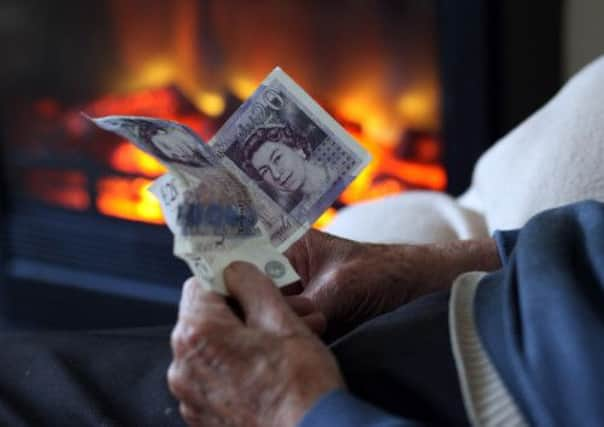Only 45% saving enough for retirement


Less than half (45 per cent) of those surveyed by Scottish Widows were found to be making adequate provision, marking a new low since research started in 2005. A retirement savings gender gap is also on the increase, with 40 per cent of women putting enough by, compared with 49 per cent of men.
The widened gap has come from a drop in the proportion of women who were preparing adequately, from 42 per cent last year. One-fifth of men and women combined were saving nothing at all for their old age and more than a third were “under-saving”.
Advertisement
Hide AdAdvertisement
Hide AdPeople were seen as preparing adequately if they were saving at least 12 per cent of their income or expecting their main retirement pot to come from a “gold-plated” defined benefit pension, which offers a guaranteed level of income such as a final salary pension.
Those saving less could still build a “worthwhile” income, but they were likely to see their living standards drop sharply after retirement.
Someone retiring aged in their mid-60s faced receiving less than half the amount of money they would feel comfortable living on in their old age, the report found. The typical level of income people felt they would need in retirement was £25,200.
But based on what pension savers were putting away, the report estimated they were more likely to end up living on around £11,400 a year, including their private and state pension.
The proportion of people saving enough for their pension has generally been on a downward slide since a peak of 54 per cent of people who were saving enough in 2009, according to the annual report.
Ian Naismith, a pensions expert at Scottish Widows, said: “People are now less prepared for retirement than at the height of the downturn a few years ago, yet expectations for income in retirement are still increasing.”
The findings come as the government’s landmark scheme to automatically place people into workplace pensions continues to try to tackle the savings crisis. Automatic enrolment began last autumn with larger firms, and up to 11 million people will be newly saving or saving more as the scheme rolls out over the next five years.
Further reforms, including introducing a simpler flat-rate state pension, are also in the pipeline as part of government and industry plans to make saving more attractive, fairer and easier to understand.
Advertisement
Hide AdAdvertisement
Hide AdThe report said that the “triple whammy” of the uncertain economy and stagnant wages, combined with people carrying debts later into life, as well as living for longer was generally making it tougher for people to put enough money by.
It said that around one-quarter of Britons aged over 50 still had a mortgage, while a similar proportion used a credit card and one in 12 had a non-mortgage loan. One-third (32 per cent) of people who had retired still had some form of debt to pay off.
Pensions minister Steve Webb said: “We know that people are not saving enough for their retirement. We have introduced automatic enrolment to help take the hassle out of saving.”